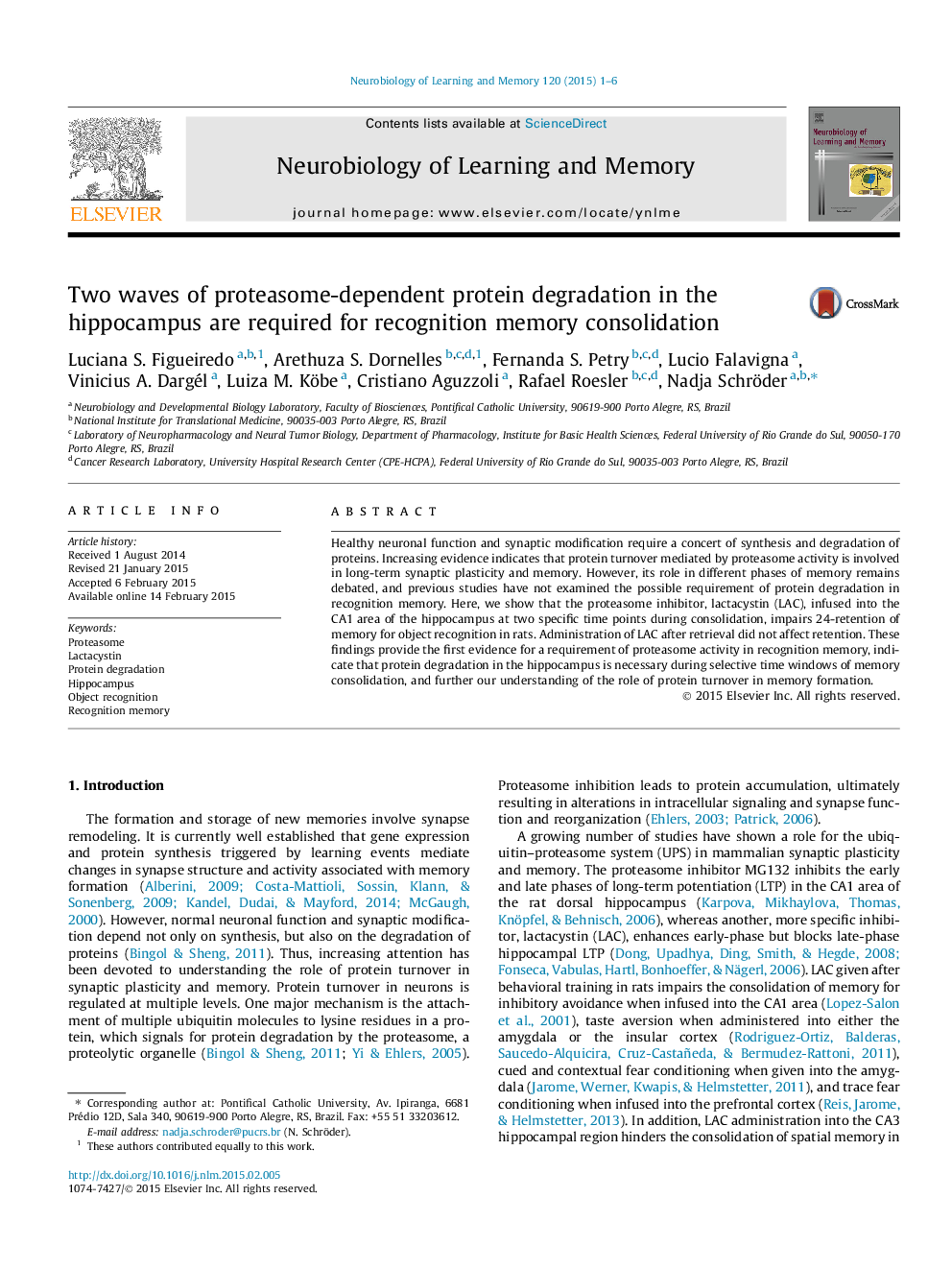| Article ID | Journal | Published Year | Pages | File Type |
|---|---|---|---|---|
| 936523 | Neurobiology of Learning and Memory | 2015 | 6 Pages |
•Inhibiting protein degradation in the hippocampus impaired recognition memory.•A biphasic time course was observed for the effect of proteasome inhibition.•Proteasome-dependent protein degradation is crucial for recognition memory formation.
Healthy neuronal function and synaptic modification require a concert of synthesis and degradation of proteins. Increasing evidence indicates that protein turnover mediated by proteasome activity is involved in long-term synaptic plasticity and memory. However, its role in different phases of memory remains debated, and previous studies have not examined the possible requirement of protein degradation in recognition memory. Here, we show that the proteasome inhibitor, lactacystin (LAC), infused into the CA1 area of the hippocampus at two specific time points during consolidation, impairs 24-retention of memory for object recognition in rats. Administration of LAC after retrieval did not affect retention. These findings provide the first evidence for a requirement of proteasome activity in recognition memory, indicate that protein degradation in the hippocampus is necessary during selective time windows of memory consolidation, and further our understanding of the role of protein turnover in memory formation.
